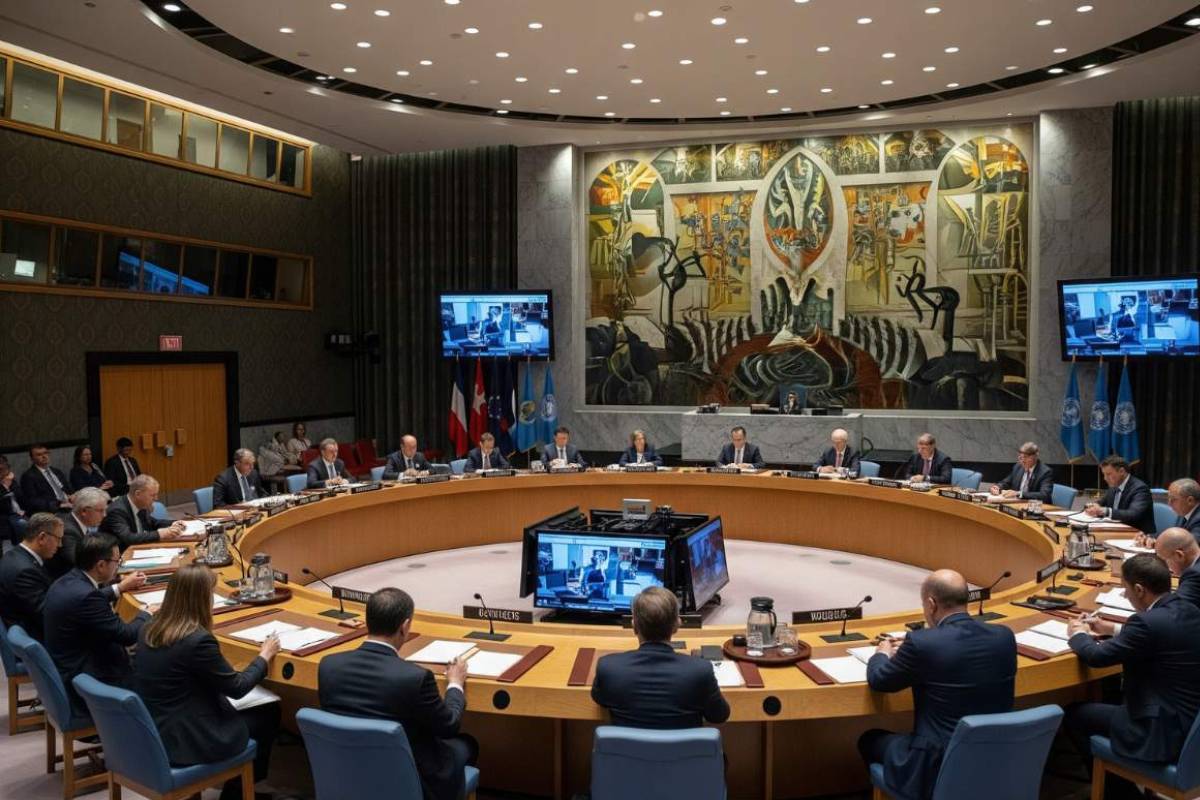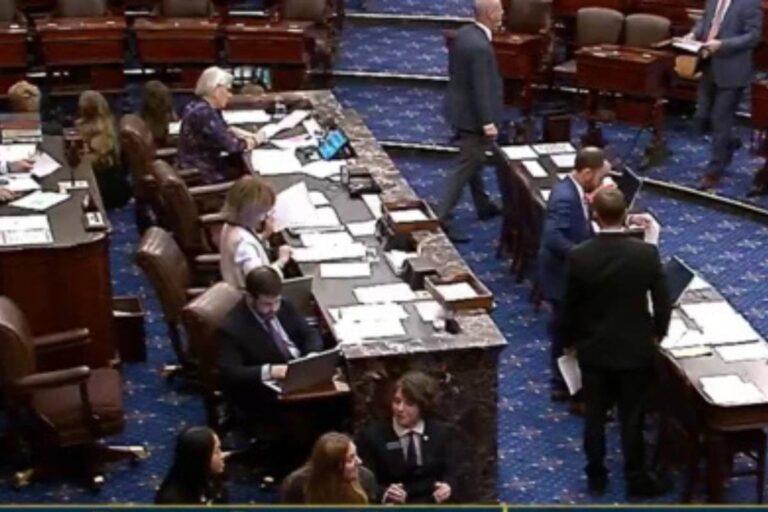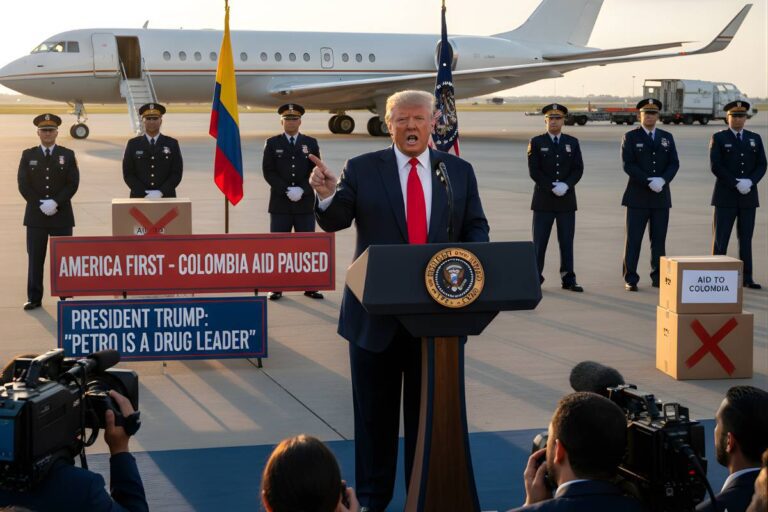Big news out of the United Nations headquarters. The United Kingdomnever one to mince words on securitystood up before the UN Security Council and said it loud and clear: It’s time for all countries to get serious about implementing Resolution 1540. This resolution, by the way, isn’t just a piece of paper tucked away in diplomatic archives but a cornerstone of the international fight against weapons of mass destruction. The stakes? High as ever. The risks? Kind of evolving all the time.
Let’s unpack what’s going on. And why it matters.
What Is Resolution 1540, Anyway?
Here’s the kicker: Resolution 1540 was adopted back in 2004, right at a time when the world was grappling with terrifying new threats. Non-state actorsthink terrorist groups, rogue networkswere increasingly seen as capable of acquiring and using chemical, biological, radiological, or nuclear weapons (CBRN). The Security Council saw the writing on the wall. And so, unanimously, members agreed: Every nation, everywhere, needed to put strict laws and practical controls in place to keep weapons of mass destruction off the streets and out of the wrong hands.
Funny thing is, implementation hasn’t always been smooth sailing. Bureaucracy, politics, regional rivalries…sometimes it gets complicated.
UK’s Strong Statement: “Full Implementation Is Non-Negotiable”
During the latest Security Council meeting, the UK’s Deputy Political Coordinator, speaking for the government, got right to the heart of the matter. The message? Simple. Every country should be all-in, no half measures, no slow-walking, no exceptions. The United Kingdom isn’t just wagging a finger: it’s offering concrete help. Expert advice, capacity-building, and financial support. You name it.
She outlined three main points. Let’s walk through them, keep things clear.
The Threat Endures and Changes
Let’s be honest: the threat posed by weapons of mass destruction hasn’t faded. It’s gotten trickier. Technology has advanced. New terrorist networks have emerged. Some countries have fallen behind on their obligations. All of this means the need for strong, effective controls is more urgent than ever.
As the UK puts it: “Resolution 1540 remains a cornerstone of the international non-proliferation architecture.”
UK Is Offering a Helping Hand
Not just big talkactual assistance:
- Legal and regulatory expertise for countries updating their laws and systems.
- Sharing best practices for monitoring and controlling CBRN materials.
- Contributing funding to international bodies, helping strengthen security worldwide.
- Outreach programs, technical advice, and direct, on-the-ground help where needed.
Quote: “The UK stands ready to provide legal and regulatory expertise, as well as broader support to States looking to meet their obligations and strengthen their national regulatory frameworks…”
Every country faces a different reality. Some have robust systems. Others may need outside help. The UK’s message? Reach out. Let’s work together.
The 1540 Committee Needs to Work for Everyone
Here’s where it gets a little wonky, but still important. Implementation depends on the effectiveness of the 1540 Committee group set up to monitor and help states with their obligations. Thing is, the committee itself has sometimes struggled. Politicking, objections, and even situations where committee members block expert participation at outreach events. The UK’s stance? Fix it. Let the experts do their job. “Reverse any action that hinders vital committee work.”
Zooming Out: Why All This Matters
Seriously, does it matter? Events in recent years have shown: weapons technology isn’t just in the hands of traditional states. Some groups will go to any lengths to get hold of nuclear, chemical, or biological materials. The consequences of a security breach? Unthinkable.
Resolution 1540 was designed as a global safety net. A way to:
- Force all states to stop supporting non-state actors seeking WMDs.
- Require laws, controls, and reporting mechanisms for dangerous materials.
- Encourage transparency and international cooperation.
If just a handful of nations ignore these rules? Whole regions and possibly the world could be at risk.
UK’s Track Record: Action, Not Just Words
Let’s drill down into specifics. Because “call to action” only means something when it’s backed by real effort.
Funding and Financial Commitments
- Global Partnership: The UK pledged up to US$750 million over 10 years to the Global Partnership, supporting international nuclear and biological security.
- IAEA Nuclear Security Fund: Since 2011, more than £12.4 million from the UK has backed programs to strengthen nuclear/radiological security.
Technical and Legal Support
- Export and border control advice for countries needing help.
- Law enforcement partnershipstrend analysis, case studies, lessons learned.
- Toolkits for national legislation and best practice sharing.
Outreach and Cooperation
- Visits to key states (including transshipment hubs) to help improve export controls.
- Assistance on Chemical Weapons Convention (CWC) and Biological and Toxin Weapons Convention (BTWC), sometimes in partnership with international bodies.
- Direct assistance in high-profile casessuch as helping the destruction of chemical weapons stockpiles in Syria, 2013/2014.
Quote: “The UK also has an active export control outreach programme, including through the EU CBRN Centres of Excellence initiative.”
International Collaboration Is Key
One country alone can’t prevent proliferation. It takes teamwork. Here’s how the process is meant to workand sometimes, how reality deviates.
Committee Structure and Reporting
- The 1540 Committee includes all members of the Security Council.
- Member states are required to file national reports detailing their progress. These reports are public and so, a measure of accountability. At last count, 112 national reports plus one from the European Union had landed on the committee’s desk.
Role of Experts
- The committee relies on outside experts for technical analysis and advice.
- Some have suggested that committee work needs utmost transparency and cooperation. Otherwise? Distrust breeds inefficiency.
Regional Approaches
- Regional cooperation is strongly encouraged, as it’s often the most practical way to build capacity. Organizations like the African Union, ASEAN, and OSCE play major roles. The UN’s own Office for Disarmament Affairs (UNODA) runs regional centers and training sessions.
Quote: “Regionally coordinated approaches have proven to be one of the most efficient means of bolstering national implementation of resolution 1540 (2004)…”
Politics and Progress
Funny thing is, for all the progress, politics can still slow things down.
- Some states object to committee experts attending outreach eventswhich, according to the UK, frustrates implementation on thematic and regional issues.
- Debate continues over whether the Security Council has too much poweressentially “legislating” for sovereign nations.
- Some suspicion lingers over enforcement, selective possession, and disarmament obligations. If I’m honest, it’s messy. But necessary.
Quote: “Successful implementation blocking access to NBC weapons generally needs a continuing spotlight on state responsibility concerning NBC weapons-related materials and relevant disarmament obligations.”
Looking Forward: What Needs to Happen
So what’s next? The UK wants to see some concrete steps:
- Full and timely adoption of a robust Programme of Work for the 1540 Committee.
- Removal of obstaclespolitical or otherwise, expert participation.
- More states stepping up reporting and transparency, building trust and momentum.
- Broader legal and technical assistance for countries that need it.
The message is about momentum. Hesitation and delay could leave vulnerabilities unchecked. The UK’s call is one piece of a global push to shore up defenses.
The Human Impact: Why It’s Not Just About Diplomacy
Too often, these debates sound abstract. But the truth runs deeper. If non-state actors ever got their hands on CBRN materials? Catastrophe isn’t an exaggeration. This is about protecting lives, preserving peace, and keeping chaos in check.
Policies, laws, training, and international cooperation aren’t just paper exercises. They’re the essential backbone of global security.
Conclusion: UK’s Commitment to a Safer Future
The United Kingdom isn’t stepping back from its responsibilities. Far from it. This latest statement at the United Nations is as much a rallying cry as it is a diplomatic signal. All stateseven the ones that think they’re out of harm’s wayhave a part to play. The machinery is in place, the expertise available. What’s needed now? Commitment. Speed. Teamwork.
Will global politics get in the way? Maybe. But here’s what’s not negotiable: the world cannot afford to let dangerous weapons fall into the hands of those who would use them for destruction.
The UK’s position? Clear as daylight. “Resolution 1540 must be honored, implemented…and made a living reality for every country.”
And for that, as the UK reminds everyone, they’re ready to help.
Key Takeaways
- UN Resolution 1540 obligates all nations to implement strong controls to prevent WMD proliferation to non-state actors.
- The United Kingdom is calling for full, timely implementation by all states.
- Robust committee function and expert participation are vital for progress.
- UK offers technical, financial, and legal support and urges others to do their share.
- Regional cooperation and transparency are essential for success.
- Lives depend on global commitment and action.
Stay tuned. This isn’t just a diplomatic debate’s one that could shape the future of global security.






















